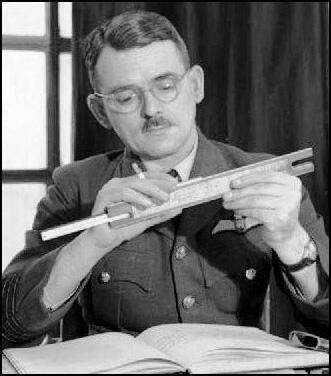Frank Whittle
Frank Whittle, the son of a mechanic, was born in Coventry, England, on 1st June, 1907. He joined the Royal Air Force as an apprentice in 1923. He showed outstanding ability as a scientist and in 1929 took out a patent on a turbo-jet engine. However, the Air Ministry rejected his ideas as impractical.
Whittle studied at Cambridge University (1934-37) before forming the Power Jets Company. The Royal Air Force became more interested in Whittle's ideas in 1939 when they heard the news that Hans Ohain in Nazi Germany had developed the world's first jet plane, the HE 178. At first, it was thought that Ohain must have stolen Whittle's ideas but in fact they had both been working independently of each other.
Whittle's jet-propelled Gloster E28 took its first flight on 15th May, 1941 and travelled at speeds of 350 mph. This was followed by the Gloster Meteor that was used to intercept German V1 Flying Bomb. Power Jets Company was taken over by the British government in 1944.

Whittle retired from the Royal Air Force in 1948 with the rank of air commodore. He was knighted and granted a tax-free gift of £100,000 in recognition of his role in developing the jet-engine. He wrote about his experiences in his book, Jet: The Story of a Pioneer (1953).
In 1977 Whittle was appointed research professor at the US Naval Academy in Annapolis.
Frank Whittle died in Columbia, Maryland, on 8th August, 1996.
Primary Sources
(1) Basil Embry met Frank Whittle while an instructor at the Central Flying School in the 1920s.
It was during this time that I first met Frank Whittle, the designer of the first jet engine. He came to Wittering on the instructors' course, but he was also hard at work on his first jet engine, and it happened that one of the instructors in my flight, Patrick Johnson, was a qualified patent lawyer. They would sit for long hours in my office, when the weather was unfit for flying, discussing the principles of the new engine; and I believe Johnson drafted the deeds of patent there. Little did I realise I was witnessing the birth of one of the greatest inventions of modern times. I frankly own I thought the idea of an aeroplane flying without a propeller seemed crazy. Evidently I was not alone in this, since later when it was suggested by the Cambridge authorities that Whittle should remain there for an extra year to carry out engine research after completing his engineering course, the Air Ministry would not agree. Ironically enough, when the request was changed to research into airscrew design, official permission was given.

